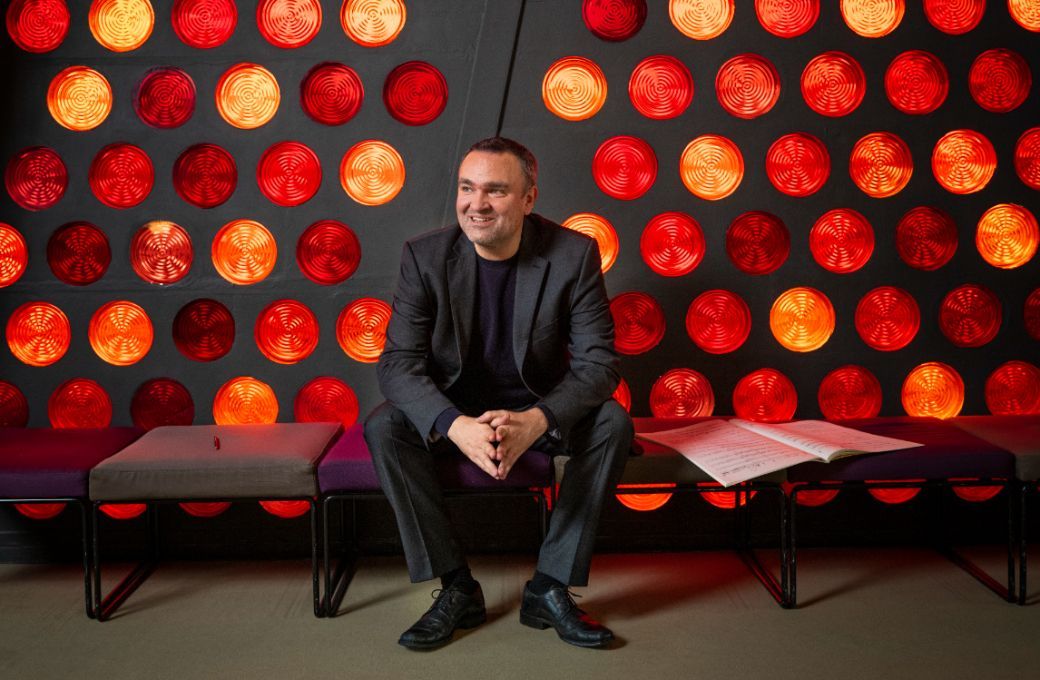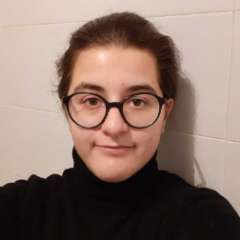If orchestral works often get credit for their bold instrumental choices – the famous hammer blow of Mahler’s Sixth having gained unexpected, but not undeserved popularity on social media – it is true that chamber music has also always provided ground for experimentation. The versatility of smaller ensembles was recently brought into focus at the Berlin Philharmonie, with a concert led by Artist in Residence Lisa Batiashvili and Composer in Residence Jörg Widmann. Extraordinarily quick-paced, the evening featured a succession of six works no longer than 20 minutes each, with a speedy turnover of performers. Together with compositions by Debussy, Prokofiev and Widmann himself, the programme included two pieces by 2009-born Georgian composer and pianist Tsotne Zedginidze, whose star I hope will only grow brighter with time.

Written for clarinet, violin and piano, Tränen der Musen (Tears of the Muses) is one of Widmann’s earliest works, a reflection on the saying “When weapons speak, muses stay silent”. Fittingly enough, the trio is minutely concerned with the balance of its dynamica, making silence tangible to different degrees. However, it is also tailored on the composer’s peculiarities as a clarinettist, which came to the foreground during the performance. It's hard to imagine how Widmann’s timbre and the quality of his playing could be rendered to the fullest in a studio recording, as his pianissimi and messe di voce require the acoustic nuance of a concert hall. On her part, Batiashvili matched his voice perfectly, her violin sounding thin but angular and secure, supported by Denis Kozhukhin’s ever-reliable piano.
Having been introduced to the piano by his grandmother at the age of five, Tsotne Zedginidze has never since stopped being voraciously interested in the classical repertoire, both instrumental and operatic. His compositions mirror this curiosity: his Impromptu for solo piano, premiered on this occasion, is reminiscent of certain Russian Romanticism and yet personal, held together by thematic recurrence and elaboration. Zedginidze’s playing was upfront and precise, complemented by a score that’s not overly virtuosic, but fluent and engaging. For his Violin Sonata, the composer was joined on stage by Batiashvili. Although short, the piece gave both performers the chance to prove their technical skills and chemistry, thanks to the alternation of solo sections and moments of taut exchange between the two instruments.
The first half closed with Debussy’s Violin Sonata in G minor. Here, Batiashvili found her most congenial environment. Her clear, cantabile phrasing had a sensual quality that was mostly enhanced when she ventured in the low register, her legato nothing short of mesmerising. During the more animated second movement, she and Kozhukhin maintained a refreshing lightness and agility.
Kozhukhin’s playful streak found a good outlet in the following work, Widmann’s suite for solo piano Zirkustänze. Drawing from Baroque suites as well as from Schumann’s collections of short piano pieces, the suite features eleven types of dances. Kozhukhin was well at ease with Widmann’s idiom, where traditional, tonal melodic prompts are frequently disturbed by interferences. The pianist approached this fragmented form with irony, ready to pursue its lyricism into unexpected twists. His nonchalant attitude highlighted the appeal of the tunes, while also keeping track of their layered nature.
Weaving in the loose ends, the last piece was Prokofiev’s Overture on Hebrew Themes, for clarinet, string quartet and piano. Its rhythmic pulse, distinctively klezmer, is easily infectious. Widmann’s clarinet and Solène Kermarrec’s cello took turns to lead while the rest of the ensemble joined in, evoking the pizazz that’s typical of the genre and closing the night con brio.


